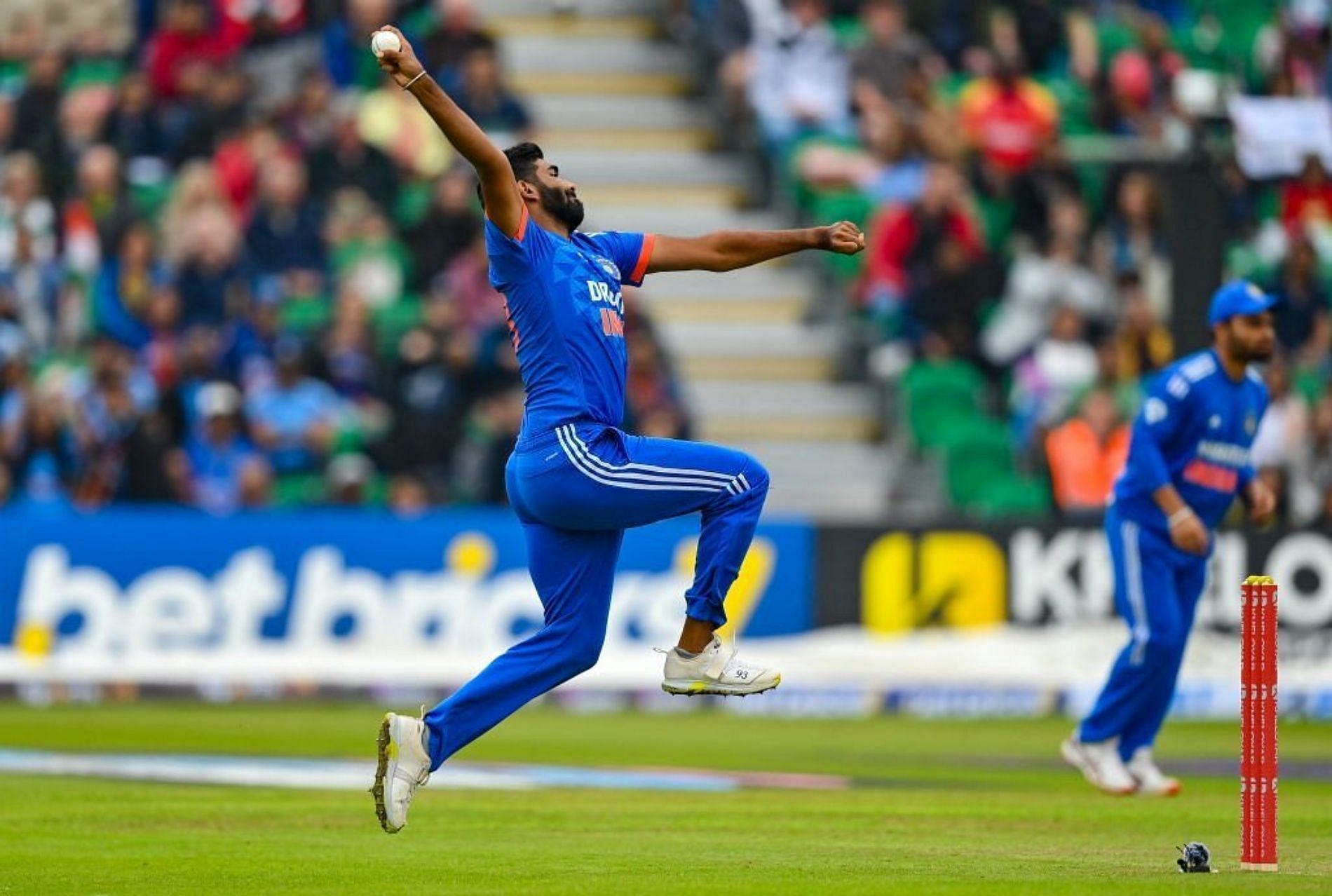
“Take it a little bit slowly” - Curtly Ambrose shares advice for Jasprit Bumrah as Indian pacer returns from injury layoff
West Indies fast bowling legend Curtly Ambrose has advised Indian pacer Jasprit Bumrah to take things a little slowly and not go all out as he looks to regain his bowling rhythm following an 11-month injury layoff.
Bumrah made a much-awaited international comeback after recovering from a back injury during the recently concluded T20I series in Ireland. It was a highly impressive return for the Indian fast bowler as he was named Player of the Series for claiming four wickets in two matches at an average of 9.75.
Following his successful comeback in Ireland, Bumrah was picked in the 17-member Indian squad for Asia Cup 2023. However, concerns over his fitness and workload management remain.
Sharing an advice for the Indian pacer, Ambrose said during an interview on Revsportz:
“Bumrah is an asset to the Indian bowling line-up and my advice to him would be to take it a little bit slowly, don’t rush back into it or try to go flat out. When you are really comfortable, then you can go flat out. It’s not a wise thing to go flat out from ball one. You don’t want to be hurt again."
“Jasprit Bumrah is a wonderful bowler. He is very different from any of the fast bowlers I have seen, very unorthodox, but highly effective. When you are coming back from an injury after a long layoff, it’s always concerning for the bowler. You don’t want to get injured again and in the back of your mind, you don’t want to go flat out too soon,” the 59-year-old added.
When fit, Bumrah has been India’s lead bowler across formats in recent years. He has 128 wickets from 30 Tests, 121 scalps from 72 ODIs, and 74 in 62 T20Is.
“If you don’t cope with the pressure well enough, you could make a mistake” - Ambrose on India’s ICC jinx
When India head into the ODI World Cup at home in October-November, they will be keen to break their ICC trophy jinx. They haven’t won an ICC event since 2013. Asked what could be the reason behind the same, Ambrose attributed it to a combination of different things.
“Once you get to the semi-final stage and more so the finals, the pressure increases. Sometimes, if you don’t cope with the pressure well enough, you could make mistakes and it could cost you the game," he explained.
“You have to take in a consideration as well that the other team is well prepared for the final too. It’s just the ones who play better on the day, who wins those key moments, usually get over the line in the end,” Ambrose concluded.
India last won the ODI World Cup in 2011 at home, becoming the first host nation to lift the trophy.